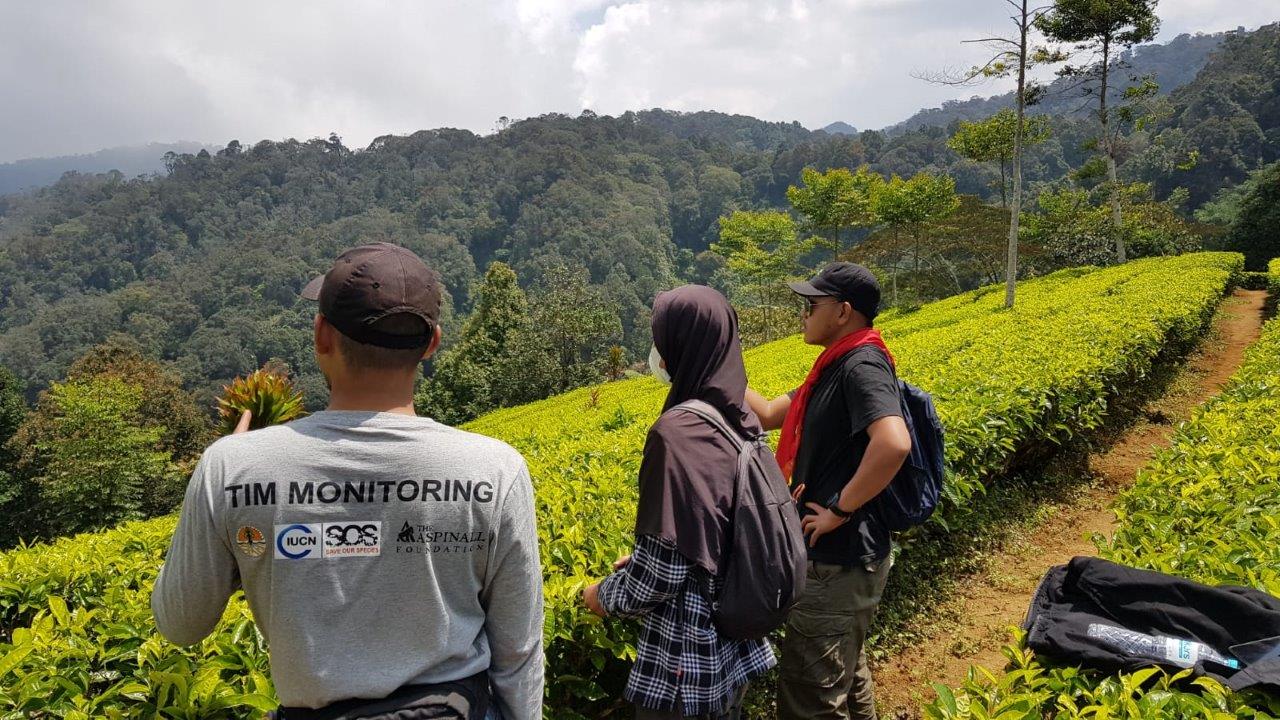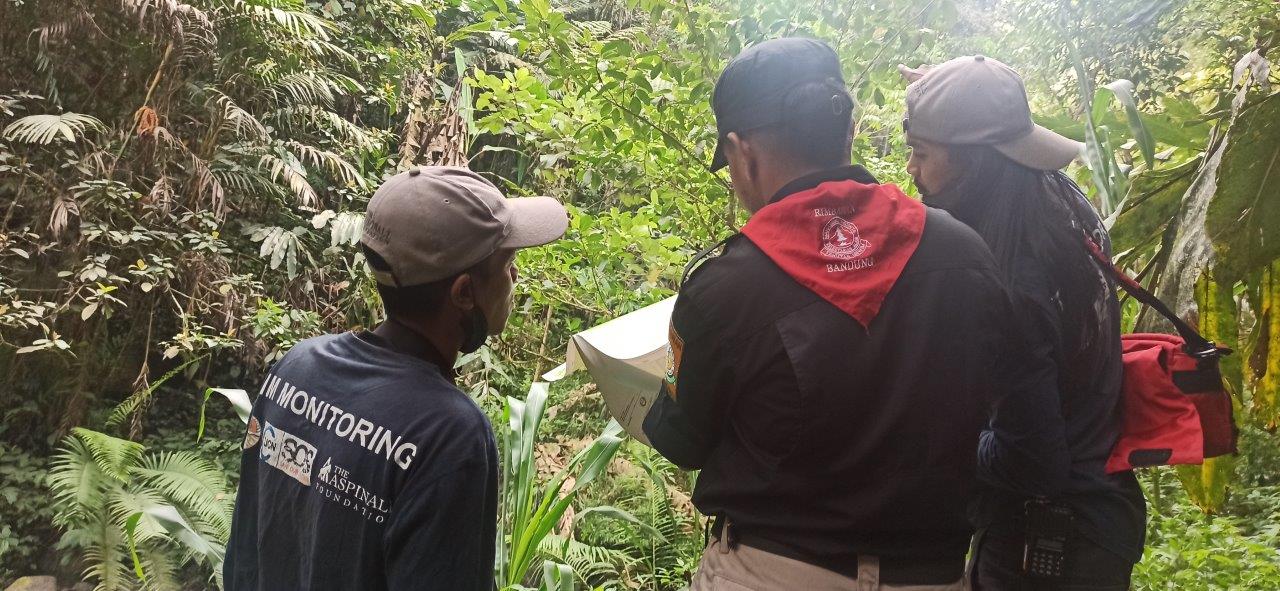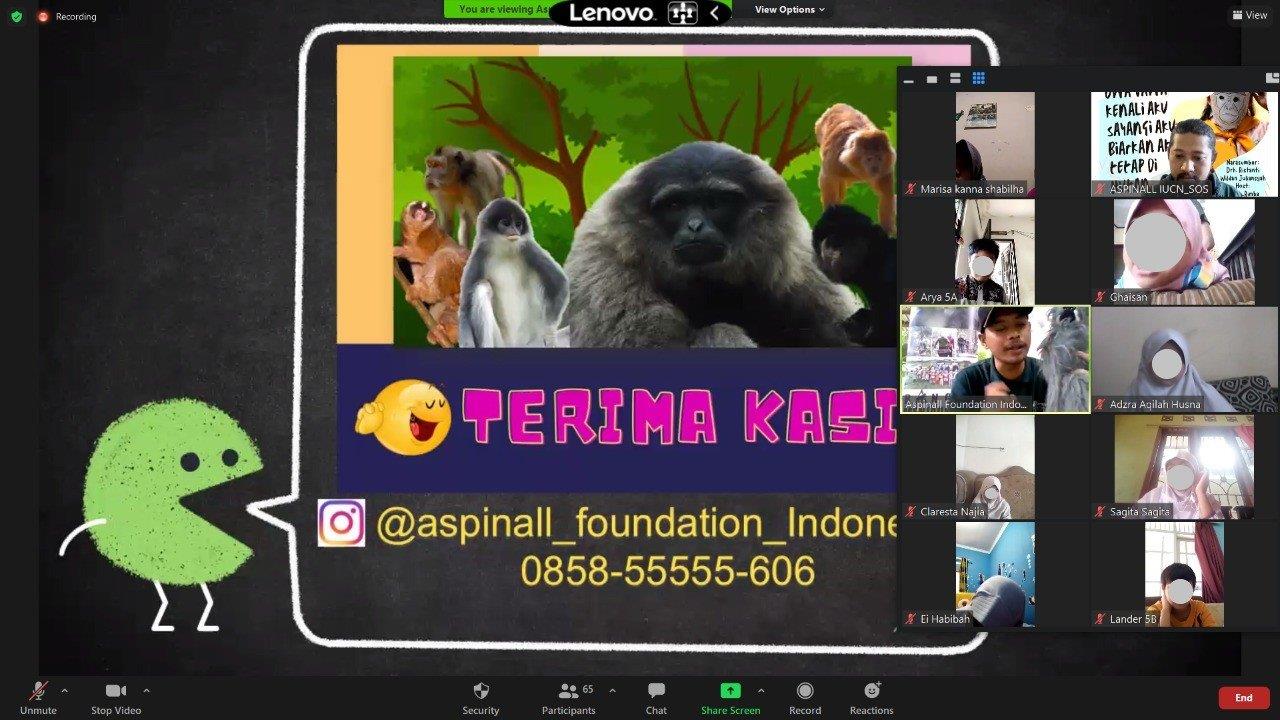As with many of our ‘in situ’ conservation projects our Aspinall Indonesia team work closely with local communities at project sites. Our team, all Indonesian and highly experienced in their respective fields, have established, and maintain, programmes that combine community support alongside working with the appropriate authorities on regulation enforcement to protect vulnerable species and habitats.
Our project to release rehabilitated Javan gibbons back to the wild at Mt Tilu Nature Reserve, currently co-funded by IUCN Save our Species, is no exception. This is something we have mentioned briefly in previous articles, but here we would like to explain in a little more detail the variety of ways that community support is making a difference.
Local Business
 Local businesses include tea estates. © The Aspinall Foundation
Local businesses include tea estates. © The Aspinall Foundation
The support of local business is highly valued. Around the Mt Tilu nature reserve many are tea estates and coffee farmers, some of whom volunteer and are keen to support the work to protect Javan gibbons in the area. As explained by Mr Dudi Denci, a local coffee farmer:
"I work in my plantation adjacent to the forest. I am proud and happy to still have time to see gibbons living free in the forest. Conservation work by TAF Indonesia is important to keep preserving the gibbons and allow my grandchildren and younger generations to see and know this unique species."
The long-term sustainability of protected habitats and their endangered flora and fauna is dependent on achieving a positive co-existence with wild areas and surrounding human habitation, and the support of local businesses helps, particularly as it contributes to generating the support of local communities too. As does the employment of local people by the Aspinall Indonesia team, for example as rangers, whenever possible.
Supporting the Conservationists of the Future
University students gain useful skills and extend their knowledge by participating in monitoring and research activities at the release sites. The coronavirus pandemic has created some limitations on the number of students that can take part, but safety protocols and testing have meant university internships have continued to take place. These young people may go on to become scientists, veterinarians, agricultural specialists or conservationists. Whatever they choose to become, the knowledge they gain from field work will prove valuable not only to their studies but their future careers.
 University students in Indonesia participate in monitoring and research. © The Aspinall Foundation
University students in Indonesia participate in monitoring and research. © The Aspinall Foundation
Educating Local School Children
Providing education to children through school trips has also been a constant feature of our projects in Java. Unfortunately this has not been possible during the pandemic, but the Aspinall Indonesia team have worked to create a solution. They have designed, and are holding, online webinars instead. Whilst this is unlikely to completely replace school trips, it may continue to be a feature of the education programme once the pandemic is over.
 Online education webinars have proved very popular. © The Aspinall Foundation
Online education webinars have proved very popular. © The Aspinall Foundation
Community-Awareness Programme
Raising awareness of conservation issues, and the laws and regulations that exist in protected areas, is often carried out through patrols. Members of the Aspinall Indonesia team usually carry out security and awareness-raising patrols alongside the BBKSDA (The Natural Resources Conservation Bureau of West Java). Visits to villages often include meetings held in small groups and local people have the opportunity to raise any issues and discuss any concerns they may have.
.jpg?width=1280&name=JAVA_2020A-156%20Patroli%20dan%20Edukasi%20(2).jpg) Patrols use banners to warn against hunting and the destruction of the forest. © The Aspinall Foundation
Patrols use banners to warn against hunting and the destruction of the forest. © The Aspinall Foundation
The Benefits
Community programmes take time and effort from the Aspinall Indonesia team and their precious resources, but the benefits are clear. Contributing to the needs of local communities, whilst also implementing the rules in place to protect vulnerable wildlife and habitats, adds integrity and sustainability to conservation projects, and creates the possibility for a more balanced human/wildlife co-existence.
This project is a part of the Javan Primates Conservation Programme (JPCP), managed cooperatively since 2010 by the Ministry of Environment and Forestry of the Republic of Indonesia and The Aspinall Foundation.
This project is co funded by IUCN Save Our Species. The contents of this article are the sole responsibility of The Aspinall Foundation and do not necessarily reflect the views of IUCN.

